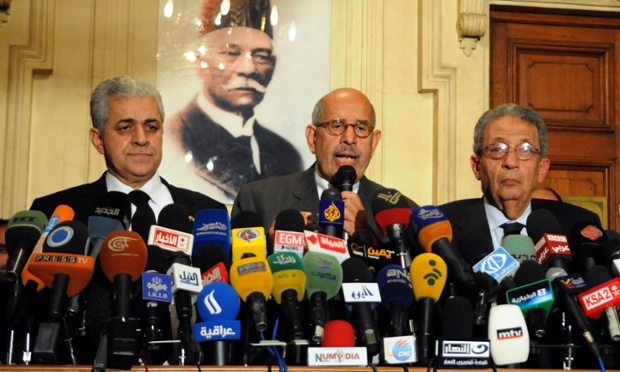CAIRO: The American Human Rights Watch Organization, which is currently in Egypt holding its quarterly meeting, met with members of the Egyptian government on April 8. They discussed human rights in Egypt under the framework of political, economic and social reform programs.
The Ministry of Foreign Affairs, as well as representatives from the Ministry of Justice, Ministry of Interior Affairs, Ministry of Social Insurance and the office of the General Prosecutor, attended the meeting held with members of the organization.
During the meeting, the government reiterated the country’s keenness on improving human rights laws and discussed the presidential elections that took place in September 2005, which garnered massive attention from human rights groups and the media for a lack of transparency, among other issues.
According to the Ministry of Foreign Affairs, the government reportedly highlighted the country’s interest in improving human rights legislation stemming from the country’s experience in the last presidential and legislative elections.
In 2005, the Egyptian government’s human rights policies came under attack by the U.S. Department of State’s country reports on human rights practices and by the Bureau of Democracy, Human Rights and Labor.
The report stated that Mubarak’s election in 2005, which he won with 88 percent of the vote, was marred by low voter turnout and charges of fraud. While the election was widely acknowledged as a significant improvement on previous presidential referenda, the government did not permit international observers to monitor the election; this raised concerns amongst human rights groups and media outlets.
The November and December parliamentary elections, the report claimed, which, on the other hand, witnessed significant opposition gains, were also tainted by violence, low turnout, fraud and vote rigging. The civilian authorities generally maintained effective control of the security forces, which committed numerous, serious human rights abuses, the report stated. The government s respect for human rights also remained poor and serious abuses continued in many areas, the report stated.
According to the report, human rights problems that faced the country included: limitations on the right of citizens to change their government; existence of the state of emergency, in place almost continuously since the 1967; torture and abuse of prisoners and detainees; poor conditions in prisons and detention centers; mass arrests and detention; prolonged pretrial detention; executive influence on the judiciary court; denial of fair public trials and a lack of due process; restrictions on civil liberties such as freedom of speech, the press, assembly and various associations; some restrictions on freedom of religion and general corruption and lack of transparency.
During the meeting, the government discussed the report, stating that despite terrorism, radicalism, the challenges imposed by illiteracy, unemployment and poverty, the government is exerting great efforts to reinforce and protect human rights in Egypt. The government also discussed the country’s active participation in regional and international arenas to implement international human rights standards.
Human Rights Watch also discussed with the government the infamous libel case that took place this year against a few journalists from Al-Masry Al-Youm newspaper, which were imprisoned for attacking the previous Egyptian Minister of Housing. The suit, which caused an outcry within the journalist syndicate in Egypt and raised eyebrows amongst human rights groups, led the case to be dropped by the ex-minister.
The government, for its part, presented the group with the legislative agenda of the government in the coming period, which is comprised of several legislative amendments related to the National Council for Human Rights such as temporary detention and the tendency toward calling off of the emergency status after the issuance of anti-terrorism law. In this context, the government emphasized their seriousness towards taking into account the content of the Second Report of the Council into consideration.
The meeting also tackled the governments efforts regarding the promotion of human rights culture by spreading awareness and merging the concepts of human rights as well as capacity building programs implemented by the Ministry of Foreign Affairs in cooperation with the UN development program to train members of the police, justice, prosecution, parliament, as well as lawyers and journalists on human rights policies and laws.
During the meeting, the completion of the human rights system, under the establishment of the National Council for Human Rights, which will be added to the national councils for women, childhood and motherhood, the Human Rights Committee in the Peoples Assembly, the Human Rights Departments in the related ministries and in the Office of the General Prosecutor, were reviewed. The government also asserted its willingness to respond to any inquiries from international or regional organizations for human rights that Egypt has joined.
This is the third meeting to be held outside the United States. The last two were held in London and Moscow.


